Brazilian Jiu Jitsu vs Bodybuilder – Which Will Define Your Fitness Journey?
Table of Contents
- Introduction
- Overview of Brazilian Jiu-Jitsu and Bodybuilding
- Growing Interest in Comparing the Two Disciplines
- Understanding Brazilian Jiu-Jitsu
- Origins and Philosophy of Brazilian Jiu-Jitsu
- Core Techniques and Principles
- Benefits of Practicing Brazilian Jiu-Jitsu
- Exploring Bodybuilding
- History and Evolution of Bodybuilding
- Training Methods and Techniques
- Physical and Mental Benefits of Bodybuilding
- Comparing Brazilian Jiu-Jitsu and Bodybuilding
- Philosophical Differences
- Physical Attributes and Training Focus
- Practical Applications in Real-Life Situations
- Case Studies and Experiences
- Stories of Brazilian Jiu-Jitsu Practitioners Facing Bodybuilders
- Insights from Bodybuilders Who Tried Brazilian Jiu-Jitsu
- Debunking Myths and Misconceptions
- Common Stereotypes About Brazilian Jiu-Jitsu and Bodybuilding
- Dispelling Myths About Strength and Skill
- Benefits of Cross-Training
- How Brazilian Jiu-Jitsu Can Enhance Bodybuilding Performance
- How Bodybuilding Can Complement Brazilian Jiu-Jitsu Training
- Conclusion
- Summary of Key Points
- Encouragement for Exploring Both Disciplines
Introduction
Overview of Brazilian Jiu-Jitsu and Bodybuilding
Brazilian Jiu-Jitsu (BJJ) and bodybuilding are two distinct disciplines with their own unique cultures, training methods, and goals. BJJ, a martial art focused on grappling and ground fighting, emphasizes technique, leverage, and submission holds to overcome opponents. On the other hand, bodybuilding is a sport and lifestyle dedicated to developing muscle mass, strength, and aesthetics through resistance training and nutrition.
Growing Interest in Comparing the Two Disciplines
In recent years, there has been a growing interest in comparing Brazilian Jiu-Jitsu and bodybuilding, fueled by curiosity about how these contrasting disciplines stack up against each other. While BJJ and bodybuilding may seem worlds apart, they share common themes of dedication, discipline, and self-improvement. This blog post aims to explore the similarities, differences, and potential synergies between Brazilian Jiu-Jitsu and bodybuilding.
Understanding Brazilian Jiu-Jitsu
Origins and Philosophy of Brazilian Jiu-Jitsu
Brazilian Jiu-Jitsu traces its roots back to Japanese Jiu-Jitsu, which was brought to Brazil by Mitsuyo Maeda in the early 20th century. The art was further developed and refined by the Gracie family, who emphasized the importance of leverage and technique over size and strength. BJJ’s philosophy revolves around the concept that a smaller, weaker individual can overcome a larger, stronger opponent through superior technique and positional control.
Core Techniques and Principles
At its core, Brazilian Jiu-Jitsu focuses on grappling techniques such as joint locks, chokes, and positional control. Practitioners learn to use their opponent’s energy and momentum against them, utilizing leverage and technique to gain dominant positions on the ground. Emphasis is placed on submissions, which force opponents to either tap out or risk injury, as well as positional control, which allows practitioners to maintain dominance throughout a match.
Benefits of Practicing Brazilian Jiu-Jitsu
The benefits of practicing Brazilian Jiu-Jitsu extend beyond physical fitness to encompass mental and emotional well-being. In addition to improving cardiovascular health, strength, and flexibility, BJJ promotes problem-solving skills, discipline, and self-confidence. The constant challenge of facing different opponents with varying skill levels fosters humility and resilience, while the supportive community aspect of BJJ creates a sense of belonging and camaraderie.
Exploring Bodybuilding
History and Evolution of Bodybuilding
Bodybuilding has a rich history dating back to ancient civilizations, where strength and physical prowess were revered. Modern bodybuilding emerged in the late 19th century with the rise of strongmen competitions and circus acts showcasing feats of strength. Over time, bodybuilding evolved into a sport focused on aesthetics, with competitors judged on muscular symmetry, size, and definition.
Training Methods and Techniques
Bodybuilding training revolves around resistance exercises such as weightlifting, with an emphasis on isolating and hypertrophying specific muscle groups. Workouts are structured to target different muscle groups on different days, allowing for sufficient recovery and growth. Nutrition also plays a crucial role in bodybuilding, with competitors adhering to strict diets aimed at maximizing muscle growth and minimizing body fat.
Physical and Mental Benefits of Bodybuilding
While bodybuilding is often associated with physical appearance, its benefits extend beyond aesthetics to encompass overall health and well-being. Regular resistance training improves muscular strength, endurance, and bone density, reducing the risk of injury and age-related muscle loss. Moreover, bodybuilding promotes discipline, perseverance, and goal-setting, instilling valuable life skills that carry over into other areas of life.
Comparing Brazilian Jiu-Jitsu and Bodybuilding
Philosophical Differences
One of the most significant differences between Brazilian Jiu-Jitsu and bodybuilding lies in their underlying philosophies. BJJ prioritizes technique, leverage, and strategy, focusing on functional strength and skill development rather than sheer size or muscularity. In contrast, bodybuilding places greater emphasis on aesthetics, with competitors striving to achieve symmetrical, proportionate physiques through muscle hypertrophy and conditioning.
For further insights into the comparison between Brazilian Jiu Jitsu and other grappling arts like wrestling, MMA, and kickboxing, refer to the following articles:
Physical Attributes and Training Focus
While both Brazilian Jiu-Jitsu and bodybuilding require dedication and hard work, they prioritize different physical attributes and training modalities. BJJ emphasizes functional strength, agility, and endurance, with an emphasis on cardiovascular conditioning and flexibility. In contrast, bodybuilding prioritizes muscle mass, definition, and symmetry, with workouts centered around resistance training and hypertrophy-focused exercises.
Practical Applications in Real-Life Situations
Another point of comparison between Brazilian Jiu-Jitsu and bodybuilding is their practical applications in real-life situations. While bodybuilding primarily enhances physical appearance and performance in the gym, Brazilian Jiu-Jitsu equips practitioners with valuable self-defense skills and the ability to handle confrontational situations. BJJ’s focus on grappling and ground fighting makes it particularly effective for self-defense scenarios where physical altercations may occur.
Case Studies and Experiences
Stories of Brazilian Jiu-Jitsu Practitioners Facing Bodybuilders
Throughout the years, there have been numerous anecdotes and experiences shared by Brazilian Jiu-Jitsu practitioners who have faced off against bodybuilders. These encounters often highlight the effectiveness of BJJ techniques in overcoming larger, stronger opponents, showcasing the practicality and efficiency of the martial art in real-world scenarios.
Insights from Bodybuilders Who Tried Brazilian Jiu-Jitsu
Conversely, there are also stories of bodybuilders who have ventured into the world of Brazilian Jiu-Jitsu, seeking to complement their training with grappling skills. These individuals often share insights into how BJJ has improved their functional strength, agility, and mental fortitude, providing a well-rounded fitness experience beyond traditional weightlifting routines.
Debunking Myths and Misconceptions
Common Stereotypes About Brazilian Jiu-Jitsu and Bodybuilding
Despite their distinctiveness, Brazilian Jiu-Jitsu and bodybuilding are sometimes subject to stereotypes and misconceptions. BJJ may be perceived as overly aggressive or impractical for self-defense, while bodybuilding may be dismissed as purely aesthetic or lacking functional strength. In reality, both disciplines offer unique benefits and have their place in the realm of fitness and martial arts.
Dispelling Myths About Strength and Skill
One common myth surrounding Brazilian Jiu-Jitsu is that it requires brute strength to be effective. In reality, BJJ emphasizes leverage, technique, and timing over raw power, allowing practitioners to overcome larger opponents with skillful execution. Similarly, bodybuilding is often associated solely with aesthetics, overlooking the strength, discipline, and dedication required to excel in the sport. Dispelling these myths is essential in fostering a better understanding of the principles and practices behind both disciplines.
Benefits of Cross-Training
How Brazilian Jiu-Jitsu Can Enhance Bodybuilding Performance
Cross-training in Brazilian Jiu-Jitsu can offer several benefits for bodybuilders looking to improve their overall fitness and athleticism. BJJ training engages different muscle groups and movement patterns than traditional weightlifting, promoting functional strength, flexibility, and cardiovascular endurance. Additionally, the mental challenges of grappling and problem-solving in BJJ can enhance focus, discipline, and resilience, translating into improved performance in the gym and on stage.
How Bodybuilding Can Complement Brazilian Jiu-Jitsu Training
Conversely, incorporating bodybuilding principles into Brazilian Jiu-Jitsu training can also be advantageous for practitioners seeking to optimize their physical conditioning and performance. Resistance training can help strengthen muscles used in grappling techniques, such as the core, shoulders, and legs, enhancing stability and power on the mat. Moreover, bodybuilding-focused workouts can aid in injury prevention and rehabilitation, improving overall durability and resilience in Brazilian Jiu-Jitsu training and competition.
Conclusion
In conclusion, the comparison between Brazilian Jiu-Jitsu and bodybuilding offers valuable insights into the diverse world of fitness and martial arts. While they may appear fundamentally different on the surface, both disciplines share common themes of discipline, dedication, and self-improvement. By understanding the unique philosophies, training methods, and benefits of Brazilian Jiu-Jitsu and bodybuilding, individuals can make informed decisions about which path aligns best with their goals and preferences. Whether pursuing functional strength and self-defense skills in BJJ or striving for muscular aesthetics and physical prowess in bodybuilding, both paths offer valuable opportunities for personal growth and development. Ultimately, the choice between Brazilian Jiu-Jitsu and bodybuilding—or a combination of both—lies in the hands of the individual, guided by their aspirations and aspirations.
Frequently Asked Questions (FAQs)
Q1. What are the main differences between Brazilian Jiu-Jitsu (BJJ) and bodybuilding?
A: Brazilian Jiu-Jitsu focuses on grappling, leverage, and submission holds to overcome opponents, emphasizing technique over brute strength. Bodybuilding, on the other hand, prioritizes muscle hypertrophy, aesthetics, and overall physical development through resistance training and nutrition.
Q2. Can bodybuilders benefit from practicing Brazilian Jiu-Jitsu?
A: Yes, bodybuilders can benefit from practicing Brazilian Jiu-Jitsu as it offers a different form of physical conditioning, including functional strength, agility, and cardiovascular endurance. Additionally, BJJ training can enhance mental focus, discipline, and problem-solving skills, complementing traditional bodybuilding workouts.
Q3. How can Brazilian Jiu-Jitsu practitioners improve their performance with bodybuilding principles?
A: Incorporating bodybuilding principles into Brazilian Jiu-Jitsu training can help practitioners strengthen specific muscle groups used in grappling techniques, such as the core, shoulders, and legs. Resistance training can also aid in injury prevention and rehabilitation, improving overall durability and resilience on the mat.
Q4. Are there any myths or misconceptions about Brazilian Jiu-Jitsu and bodybuilding?
A: Yes, common misconceptions include the belief that BJJ requires brute strength to be effective and that bodybuilding is solely focused on aesthetics. In reality, BJJ emphasizes technique and leverage, while bodybuilding promotes strength, discipline, and overall physical development.
Q5. How can individuals decide between Brazilian Jiu-Jitsu and bodybuilding?
A: The choice between Brazilian Jiu-Jitsu and bodybuilding depends on individual preferences, goals, and interests. Those interested in self-defense, functional strength, and mental resilience may prefer BJJ, while individuals seeking muscular aesthetics and physical conditioning may lean towards bodybuilding. Some may choose to incorporate elements of both disciplines into their fitness routine for a well-rounded approach.
Q6. What are the potential benefits of cross-training in Brazilian Jiu-Jitsu and bodybuilding?
A: Cross-training in both Brazilian Jiu-Jitsu and bodybuilding can offer several benefits, including improved physical conditioning, enhanced mental focus, and a more well-rounded fitness experience. Practitioners may find that combining elements of both disciplines allows for greater versatility, performance gains, and overall satisfaction with their training regimen.
Q7. Is Brazilian Jiu-Jitsu effective for self-defense against larger opponents?
A: Yes, Brazilian Jiu-Jitsu is renowned for its effectiveness in self-defense scenarios, particularly against larger and stronger opponents. By utilizing leverage, technique, and positional control, BJJ practitioners can neutralize the size and strength advantages of their adversaries, making it a practical and reliable martial art for real-life confrontations.
Q8. How can bodybuilders incorporate Brazilian Jiu-Jitsu into their fitness routine?
A: Bodybuilders can incorporate Brazilian Jiu-Jitsu into their fitness routine by attending regular classes at a reputable BJJ academy. It’s essential to start with beginner-friendly classes to learn the fundamental techniques and gradually progress to more advanced training sessions. Additionally, balancing BJJ practice with traditional weightlifting workouts can help maintain muscular strength and mass while improving overall functional fitness.
Q9. Are there any age or fitness requirements for practicing Brazilian Jiu-Jitsu or bodybuilding?
A: Brazilian Jiu-Jitsu and bodybuilding are inclusive disciplines that welcome practitioners of all ages and fitness levels. While some BJJ academies may offer specialized classes for children or seniors, individuals of any age can benefit from training in Brazilian Jiu-Jitsu or bodybuilding. It’s essential to start at an appropriate intensity level and gradually progress as fitness and skill levels improve.
Q10. Can women participate in Brazilian Jiu-Jitsu and bodybuilding?
A: Absolutely! Brazilian Jiu-Jitsu and bodybuilding are open to individuals of all genders, including women. Many BJJ academies offer women’s-only classes to create a supportive and inclusive training environment. Similarly, female bodybuilders compete in various categories alongside their male counterparts, showcasing strength, athleticism, and dedication to the sport.
Q11. Are there any safety considerations when practicing Brazilian Jiu-Jitsu or bodybuilding?
A: Safety is paramount in both Brazilian Jiu-Jitsu and bodybuilding. Practitioners should always warm up properly before training, use proper form and technique during exercises, and listen to their bodies to prevent injuries. In Brazilian Jiu-Jitsu, tapping out during sparring or drills is essential to avoid injury, while bodybuilders should prioritize proper lifting techniques and gradual progression in weightlifting.
Q12. How can individuals find reputable Brazilian Jiu-Jitsu academies or bodybuilding gyms?
A: To find reputable Brazilian Jiu-Jitsu academies or bodybuilding gyms, individuals can research online reviews, ask for recommendations from friends or family members, and visit different facilities to observe classes or training sessions. It’s essential to choose a training environment that prioritizes safety, professionalism, and a supportive community atmosphere to ensure a positive experience and optimal progress.

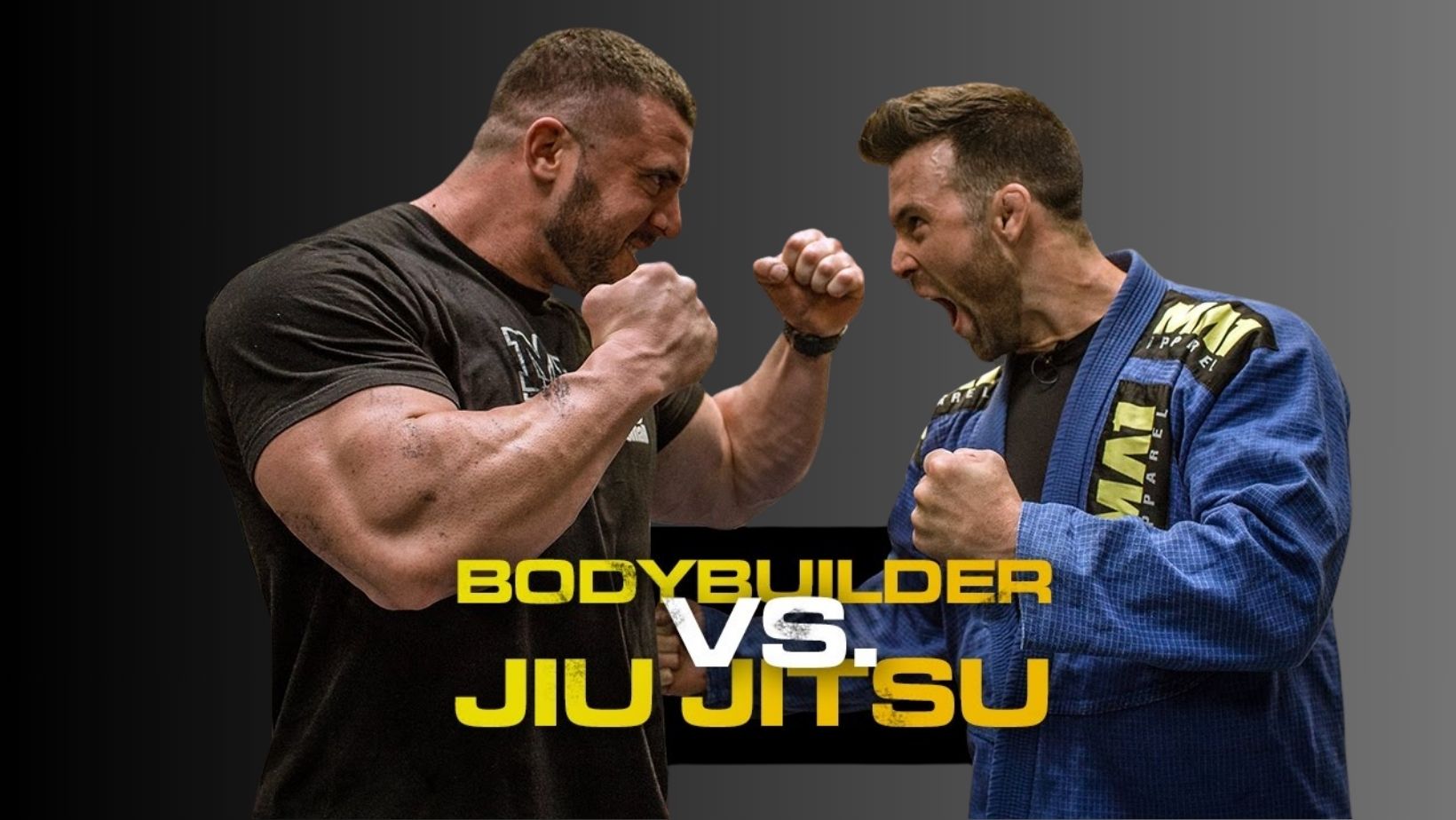


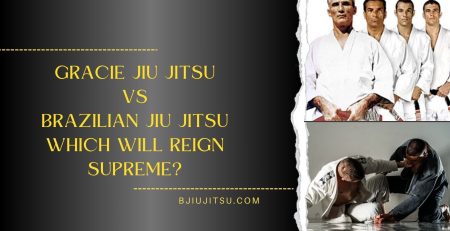
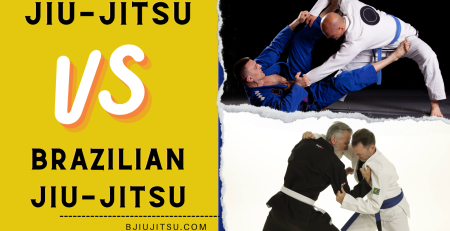
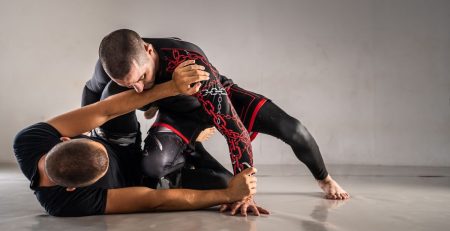
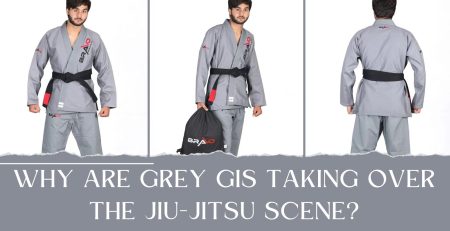

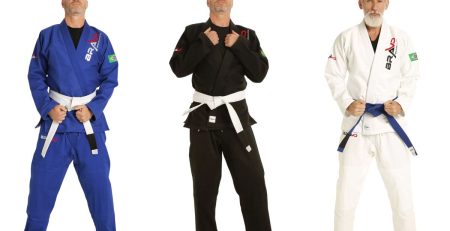
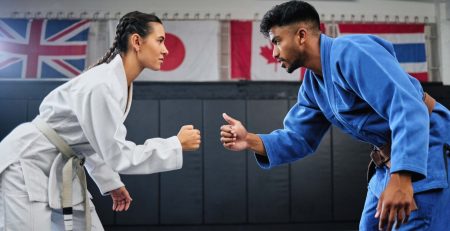


Leave a Reply
You must be logged in to post a comment.